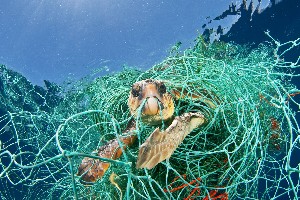Keep Our Beaches Clean!

Join Panama's National Beach Cleanup Sunday September 27 2015, 8:00 a.m. Coronado Marine debris is defined as persistent solid material that has been manufactured or processed, and is disposed of or abandoned in the marine environment.
Aluminum cans, plastic bags, fishing line and nets are just a few of the items considered marine debris. Basically, what we are talking about here is litter, the items that persistently find their way from our hands into rivers, lakes and the ocean. Some of these materials never decompose. They remain in our ecosystems forever.
While seemingly inescapable, marine litter is an easily solvable problem. How do we solve such a global issue? We take responsibility. We make changes in our daily lives and we encourage others to do the same.
Even if you don’t live near the beach, river, or waterway your health relies on the health of these resources. Oceans and rivers affect the air we breathe, the water we drink, and the food we eat. Even modern medicine, jobs and the economy rely on the ocean’s health. Nobody likes lying on a beach surrounded by plastics bottles, flip-flops and tampon applicators. The only way to change this scene is to use less of these items, and pick up what washes up on shore.
Our impact on the ocean has not only been detrimental to our health, but also the health of marine animals. Birds, sea turtles, fish, crustaceans and even corals are negatively affected by plastic and synthetic materials. One of the biggest threats is entanglement in nets or fishing line. Another problem marine animals face is ingestion of these materials. A study of 38 green turtles found that 61 percent had ingested some form of marine debris including plastic bags, cloth, and rope or string (Bugoni et al., 2001).
Prior to the 1950’s most fishing gear was made of biodegradable products; these products were easily broken down. Today plastics and synthetics enter the marine environment and do not break down. If we are going to overcome the problem of marine debris, humans are going to have to start to move away from non-recyclable synthetics and consciously begin to reuse what we’ve got, reduce what we waste, and recycle what we can.
Here in Panama, Individuals and organizations are beginning to listen to the warning signs, and create change. This year people all over Panama will come together for the 24th national beach clean up. This year the event will be held on Sunday September 27th 2015 starting at 8:00 a.m.
Each year about 5000 people nation wide come together to clean up Panama’s shores. The event is as much about picking up the trash, as it is about raising awareness.
For the second year in a row, PlayaCommunity will be the Playa Serena, Coronado beach cleanup coordinator. We will be meeting at the public beach entrance at the end of Calle Punta Prieta on September 27th at 8:00 a.m.
Join us, be a part of one of the largest national cleanups in Panama. Rid the shoreline of debris while raising awareness and empowering individuals to support a healthier, more resilient ocean.
Trending Tags
